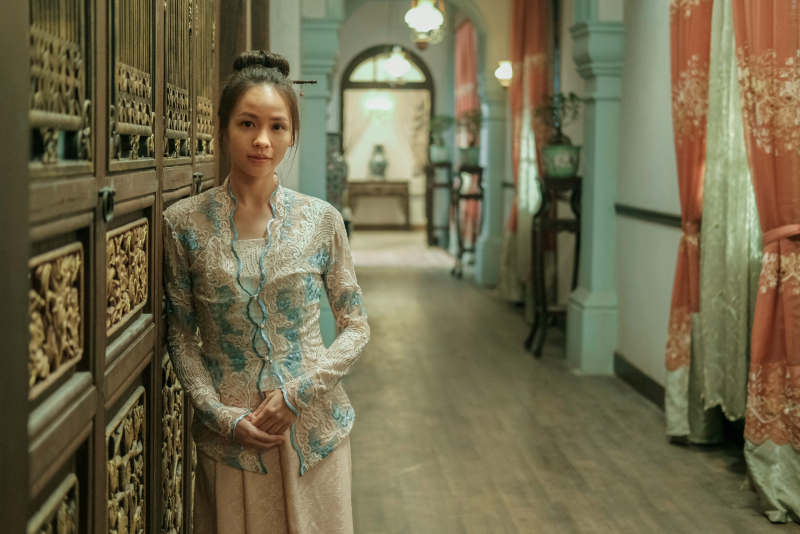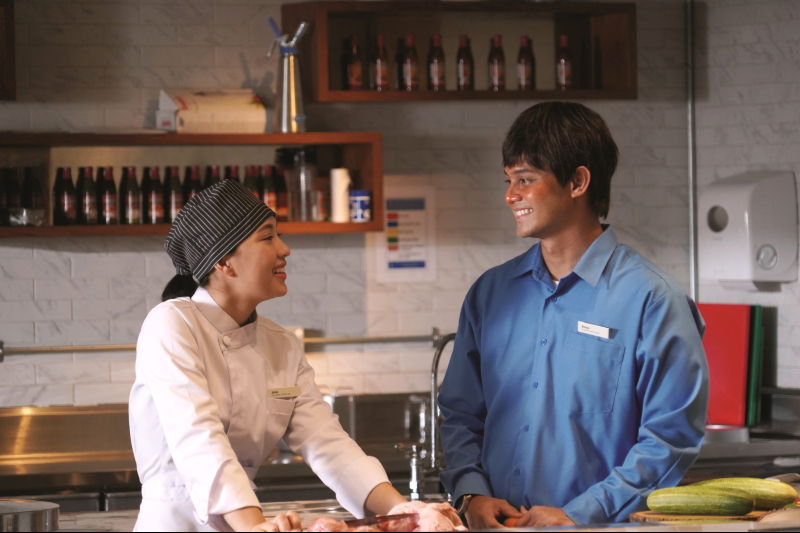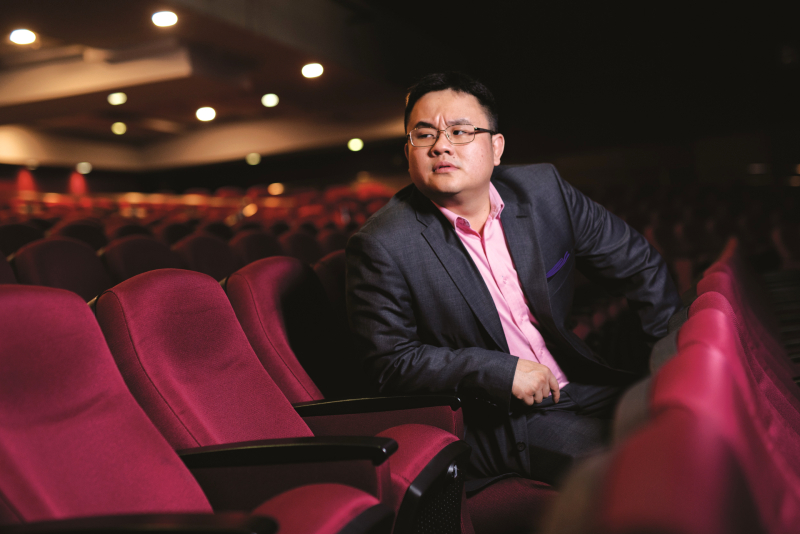
Scenes from The Ghost Bride (All photos: Netflix)
It was in 2016 that our consumption of entertainment altered quite drastically in Malaysia — Netflix was finally available here, our access to which changed the television landscape permanently. We were no more beholden to scheduled programming provided by terrestrial and cable TV because we now had access to the full suite of content made available on the video-streaming platform.
One of Netflix’s main claims to fame, however, is its ability to generate market-specific original content — award-winning stuff that has generally upended the industry and given storytellers in other countries a chance to shine which they otherwise may not have had. For the better part of the last four years, the American streaming giant has expanded its library of diverse content by engaging with some of the most prominent local storytellers and talent, either via popular licensed content or original stories.
Regionally, India and South Korea have stood out in this regard — true crime narrative Delhi Crime has achieved cult status, as has Korean romantic serial My First First Love. Malaysia isn’t far behind in the race to produce high-quality local content for Netflix. When the announcement broke that Malaysian author Yangsze Choo’s debut novel The Ghost Bride was to become a six-episode series in Mandarin, it was the start of many more local productions that made it onto the streaming platform — some of which are accessed only regionally while others can be viewed by a global audience.
wan01834_1.jpg

The content crosses genres too, including comedy with Dr Jason Leong: Hashtag Blessed, which is Netflix’s third Malaysian stand-up comedy special, while director Adrian Teh’s action-packed military thriller Paskal: The Movie and Wira was followed up with his latest flick, rom-com Pasal Kau. This puts Malaysian filmmakers and actors on a global stage, a move that is critical in growing the industry further. According to Netflix’s content acquisition manager for Southeast Asia Raphael Phang, this is very much in line with the company’s objective to raise the profile of local filmmaking while serving the needs of its customer base.
“Ultimately, our goal is to take stories from different countries and showcase them globally so they are accessible to all our audiences,” Phang says during a video interview from his base in Singapore. “Our role in content acquisition for Netflix is to curate content for our members and really understand the media and entertainment landscape, what people are watching and what the gaps are and how we can provide more member joy.”
Pasal Kau is Netflix’s latest local acquisition — a Bahasa Malaysia rom-com set in a luxury hotel, with the screenplay co-written by acclaimed comedienne Shamaine Othman and Nazri Annuar. Starring Hairul Azreen, Janna Nick, Amerul Affendi, Henley Hii and established actor Namron, Pasal Kau weaves together a charming love story with a fanciful setting — and for a plot twist, a foiled kidnapping. Teh, who is chairman of the Chinese Film Association of Malaysia (CFAM), started out making mostly Chinese language films but has recently expanded into Bahasa Malaysia as well.
dsc00721_1.jpg

“He was actually the one who came up with the idea of a rom-com,” says Phang. “But what really drew me to Pasal Kau was how he included Easter eggs in it — iconic scenes from his previous movies, which Netflix audiences have really enjoyed, are featured in it. I haven’t actually seen a lot of rom-coms coming out of Malaysia and this was something we wanted to pick up, and of course, learn from. We are still new in the business and any title we pick up, we want to learn from, so we can serve our audiences better.”
While we would like to think that Malaysian tastes are especially exotic, Phang jokingly assures me it’s not quite the case. Apart from a healthy diet of movies and episodic programming from the US and the UK, we also enjoy regional programmes for their familiarity. For the same reason, Malaysian-made shows do very well. “Whatever is close to home, and relevant,” he says. “An example is Pulang, an epic love story set in World War II. It was an emotional drama that was very well received in Malaysia.”
Rather than look at tastes per region, Netflix considers each customer individually, with its sophisticated algorithms suggesting material to you based on what you already like. If you’ve always preferred comedies and action movies, for example, the system is unlikely to suggest a horror film — even if it is produced in the country where you are from or in the language of your user interface. Incidentally, Netflix’s user interface is available in 30 languages, with Malay among the most recent additions, while Malaysia is one of five countries where Netflix has a mobile plan.
dr._jason_leong_hashtag_blessed_3_1.jpg

This year’s border closings due to the Covid-19 pandemic has affected a lot of Netflix’s production partners in Malaysia and around the region. Filmmakers will have to get back to work as fast as possible to keep the cycle of production moving while adhering to SOPs, which is where the streaming giant’s support — financial and moral, as it were — is crucial. With cinemas largely inaccessible and more people now watching Netflix from the comfort of their homes, the role the company plays in harnessing new talent is increasingly important going forward.
To filmmakers wanting to get on the platform, Phang has this to say. “At a time of so much uncertainty, our plan remains the same, which is looking for great stories. We want to bring these great stories to our members around the world. But don’t ask what content we are looking for. Instead, tell us what stories you want to tell, what stories you’re great at. There is a story inside all directors and writers, and I don’t want you to produce it for us, but produce because you believe in it — the intention always shows in the final product. When the producer of Pulang brought us the film, we were so in love with it and only later did we find out that it was loosely based on his grandparents. That authenticity shows in the film and is what we were drawn to.”
In terms of Netflix’s strategy for Malaysia, like any other country in the world, Phang says, “This is a marathon, not a sprint. Getting more quality content and growing our reach is a step-by-step process.”
This article first appeared on Oct 26, 2020 in The Edge Malaysia.


